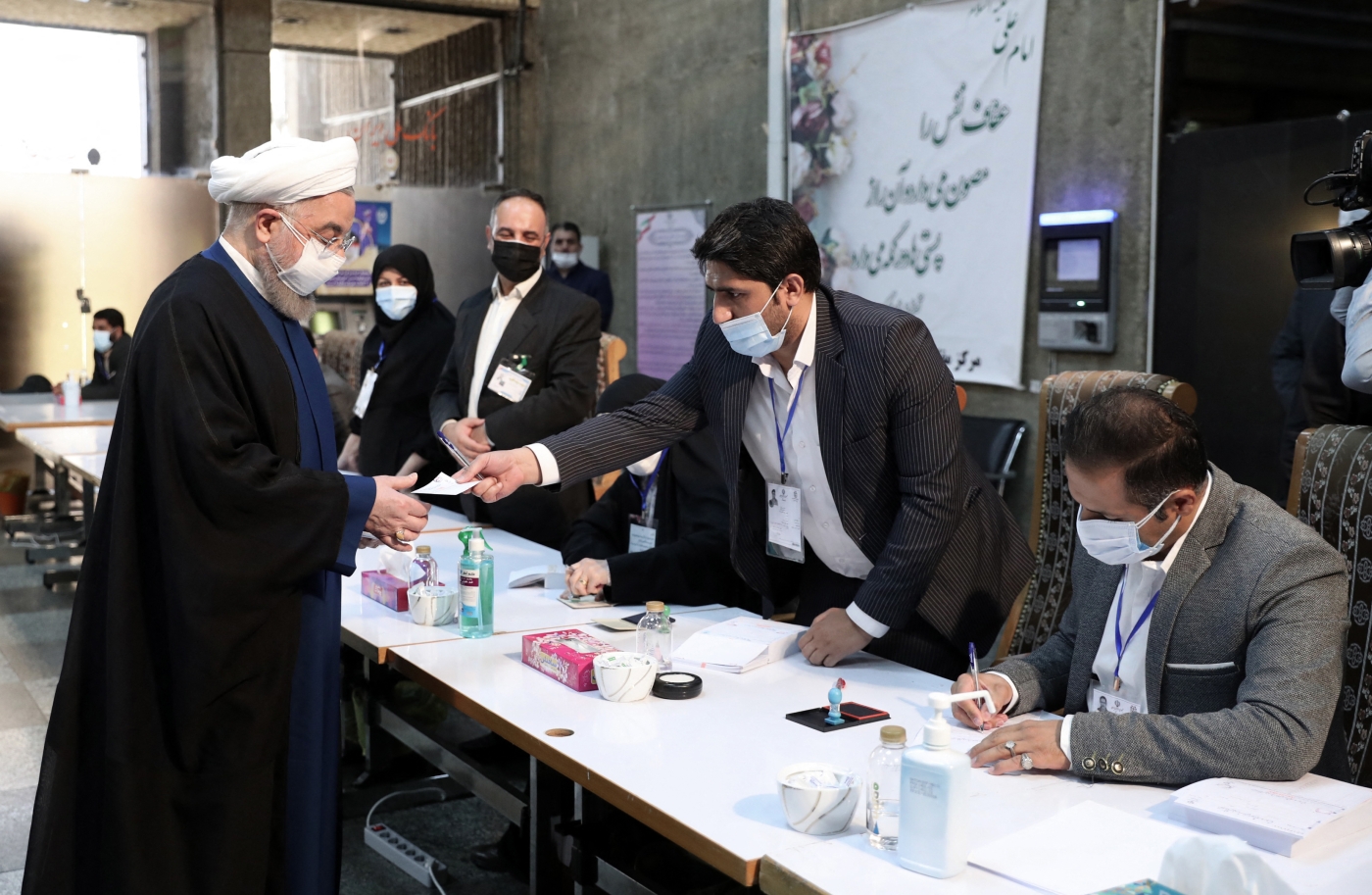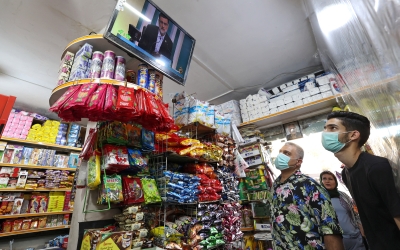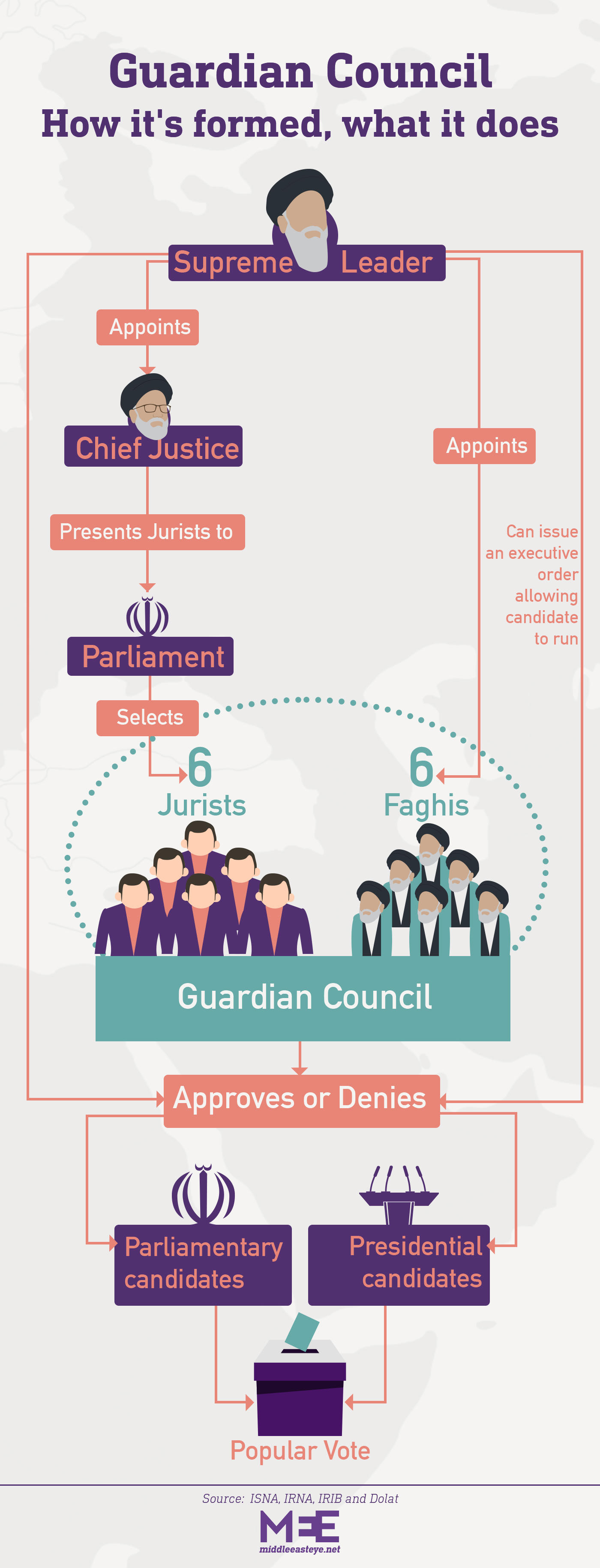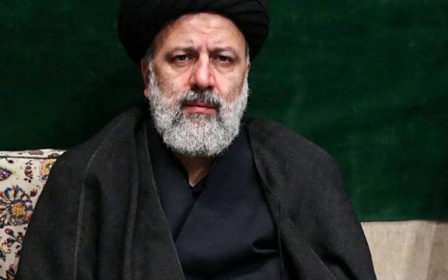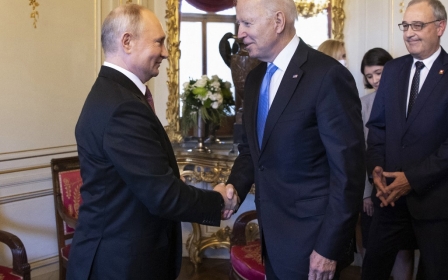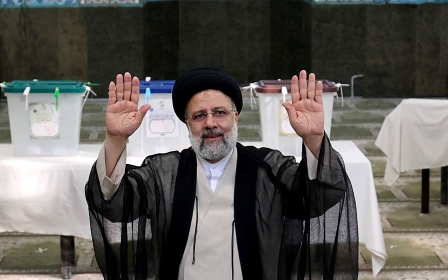Iran elections: Voters head to polls with low turnout and conservative victory expected
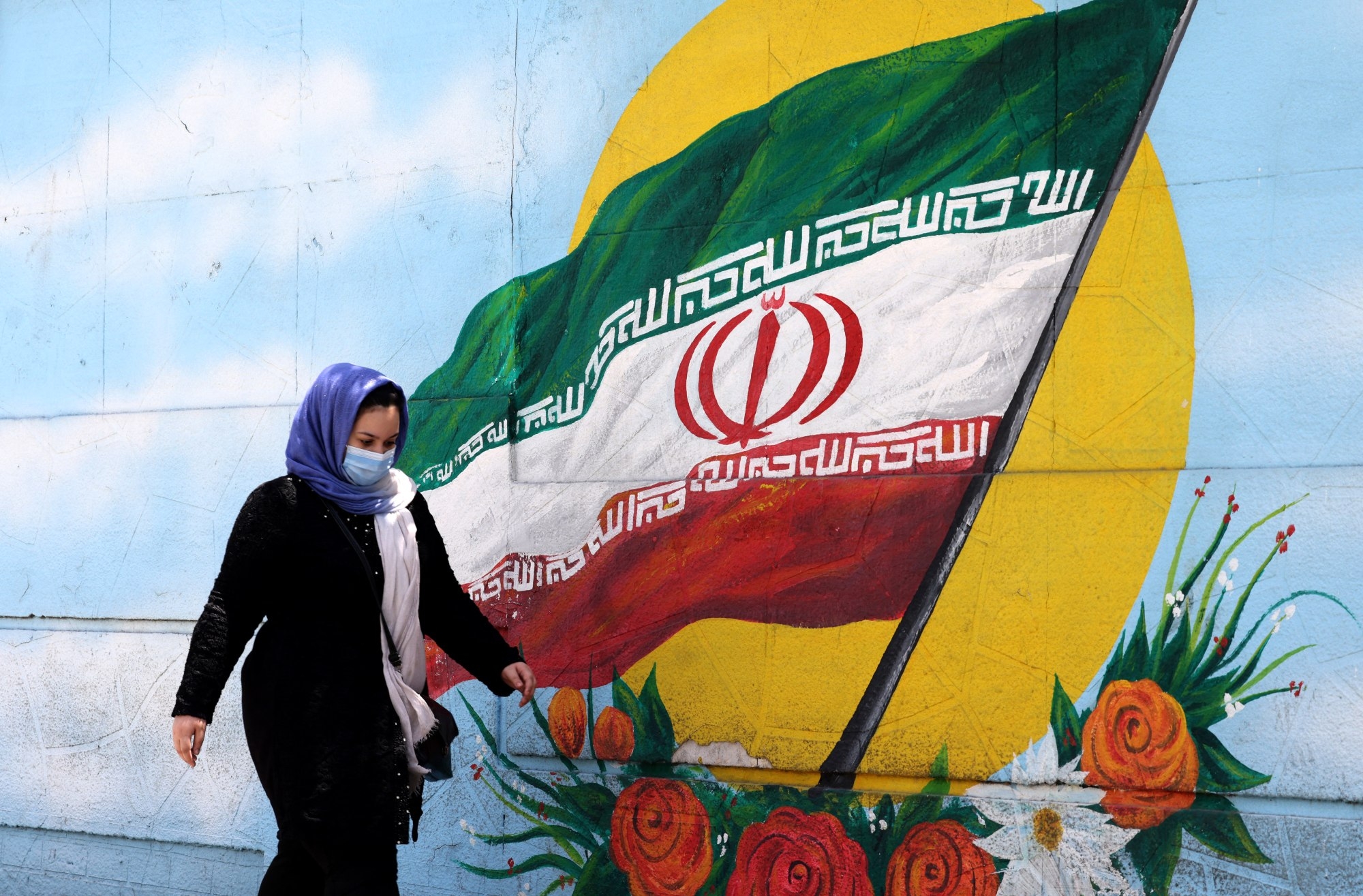
Iranians headed to the polls on Friday to vote in presidential elections, with a low turnout and victory for the conservative candidate expected.
Ebrahim Raisi, a senior cleric and the current chief justice of Iran, is predicted to win the presidency after the country's Guardian Council barred most reformist candidates from running in the election.
Anger and apathy have greeted the limited offering and polls signal the turnout may drop below the 43 percent of last year's parliamentary election before the scheduled close of polls at midnight (1930 GMT).
In addition, numerous opposition groups have called for a boycott.
Supreme Leader Ali Khamenei cast the first vote in Tehran before urging Iran's nearly 60 million eligible voters to do likewise.
"The sooner you perform this task and duty, the better," he said.
Iran's economy has crumbled under years of sanctions. It is also facing one of the worst Covid-19 crises in the region and public anger over widespread corruption.
Whoever wins will take over as president from Hassan Rouhani, who ran as a moderate in 2013 but has been widely criticised for failing to live up to his promises, especially after the collapse of the 2015 nuclear deal.
Rouhani told the public on Friday: "Elections are important no matter what, and despite these problems we must go and vote," adding that he would have liked to see "more people present" at polling stations.
'Absolutely I will not vote'
Results are expected to come in around midday on Saturday, and if no clear winner emerges a runoff will be held a week later.
From almost 600 hopefuls who originally sought to run for the presidency, only seven were eventually approved.
Among those disqualified were conservative former parliament speaker Ali Larijani and populist ex-president Mahmoud Ahmadinejad. In the end, the only candidate running from Iran's reformist camp was former central bank chief Abdolnaser Hemmati.
A number of Iranians told Middle East Eye that they had no intention of voting in such a limited contest.
"Absolutely I will not vote. Who can vote? Why should we vote at all? What happened after we turned out to vote in the elections for so many years?" said Elnaz, a 27-year-old architect.
"I do not see anyone around me who wants to vote - going to the ballot box is just like an insult to yourself."
After the list of qualified candidates was released, the proportion of people who said they would definitely vote declined to 37.7 percent, according to the Iranian Students Polling Agency (ISPA).
"These people are tired of choosing between a lesser of two evils for years," said Mahmoud, a retired teacher.
“These games no longer work. They cannot scare people with someone like Ebrahim Raisi to go and vote for his rival.”
“In this round of elections, the establishment has announced the game is over and basically no rivals are remaining in the race," he added.
Sara, a 29-year-old bank employee in Tabriz, north-west Iran, said that by boycotting the elections, "we are showing to the world that the Islamic Republic is not legitimate to the Iranians."
Middle East Eye propose une couverture et une analyse indépendantes et incomparables du Moyen-Orient, de l’Afrique du Nord et d’autres régions du monde. Pour en savoir plus sur la reprise de ce contenu et les frais qui s’appliquent, veuillez remplir ce formulaire [en anglais]. Pour en savoir plus sur MEE, cliquez ici [en anglais].


